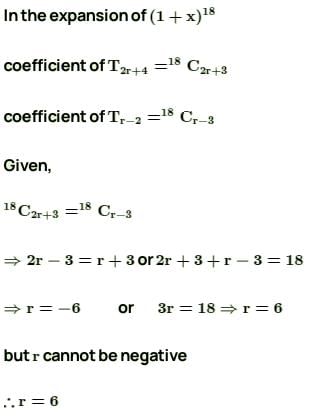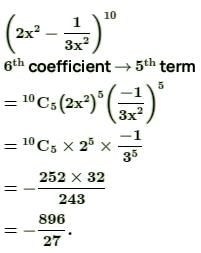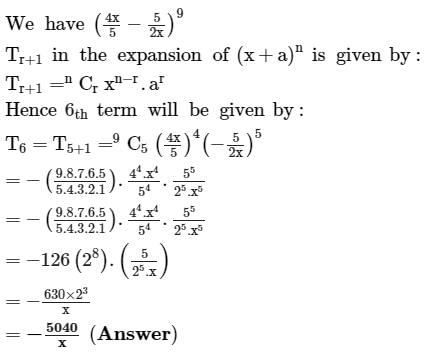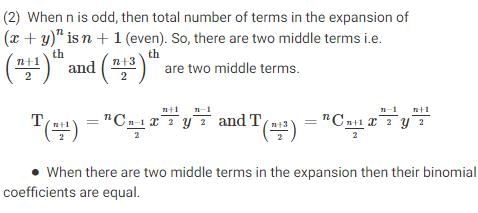Test: Binomial Theorem For Positive Index - JEE MCQ
15 Questions MCQ Test - Test: Binomial Theorem For Positive Index
The number of terms in the expansion of (2x - 3y)8 is
In the expansion of (a+b)n, N the number of terms is:
Find the value of r, if the coefficients of (2r + 4)th and (r – 2)th terms in the expansion of (1 + x)18 are equal.
If the coefficients of 7th and 13th terms in the expansion of (1 + x)n are equal, then n is equal to
What is the coefficient of x5 in the expansion of (1-x)-6 ?
In the expansion of the binomial expansion (a + b)n, which of the following is incorrect ?
The middle term in the expansion of (x + y)10 is the
If in the expansion of (1+x)20, the coefficients of rth and (r+4)th terms are equal, then the value of r is equal to:
The number of terms in the expansion of (x – y + 2z)7 are:
The number of terms in the expansion of (a + b + c)n are:
The general term in the expansion of (a - b)n is




















